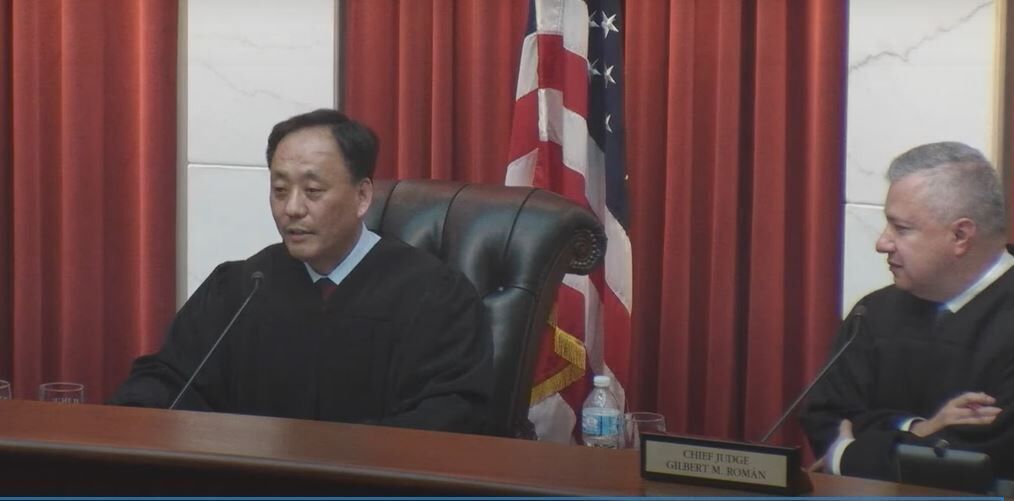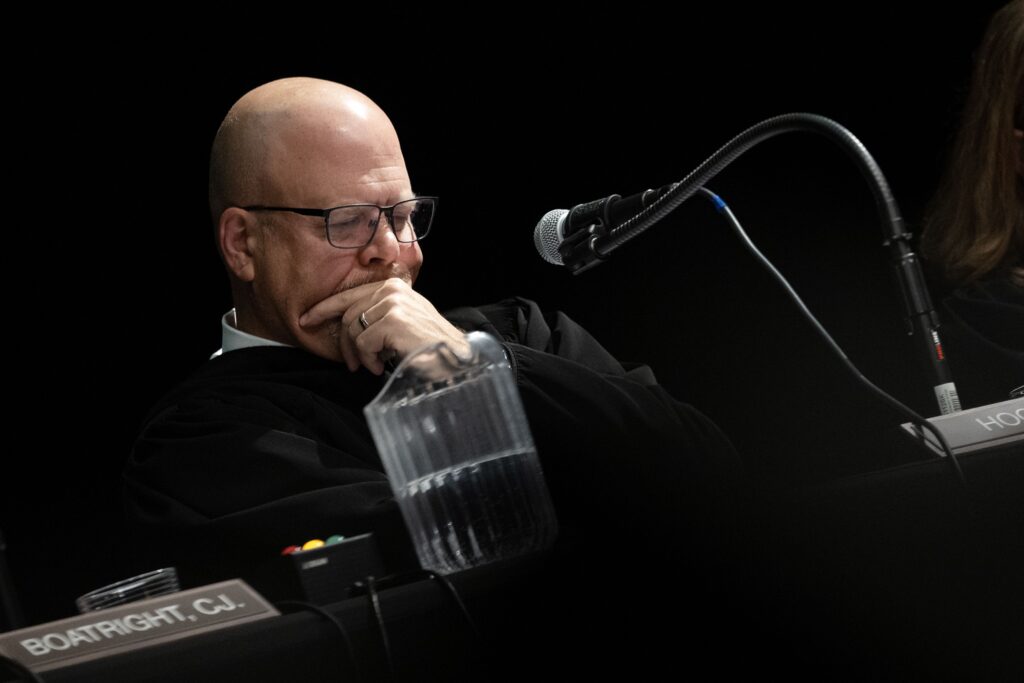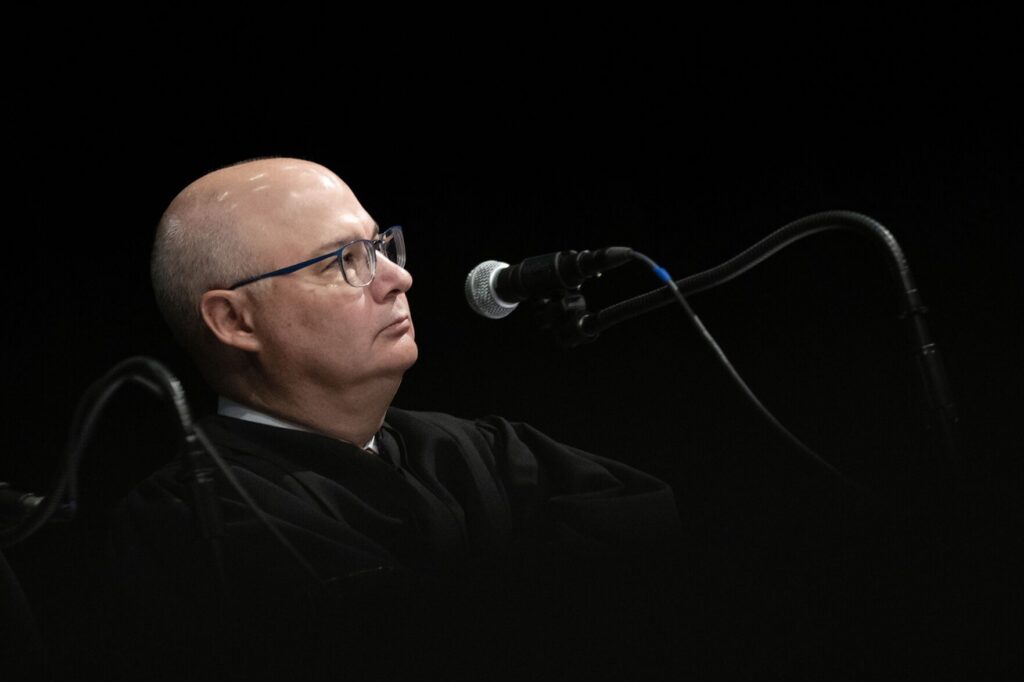Judge dismisses assault-related lawsuit against Adams County jail officials

A detainee in the Adams County jail has not plausibly claimed officials violated his constitutional rights by failing to investigate and protect him from a series of alleged sexual assaults while he was sleepwalking, a federal judge has decided.
Joseph Anthony Cruz reportedly discovered circumstantial evidence of being sexually assaulted while he was asleep and also alleged one cellmate had told him, “I raped you while you slept.”
Nevertheless, jail employees had not subjected him to cruel and unusual punishment in violation of the Eighth Amendment, the court concluded.
“Although prison officials have a duty to protect inmates from violence at the hands of other inmates, not every injury resulting from violence between inmates results in constitutional liability,” wrote U.S. Magistrate Judge N. Reid Neureiter in his analysis of the case last month.
In a lawsuit that the government labeled as “atypical” and Cruz himself even admitted was “iffy,” Cruz allegedly grew concerned in July 2021 that someone had sexually assaulted him while he was sleepwalking in the jail. His evidence at the time was his “sprit hurting,” feelings of suicidality and that his anus “felt different.”
Cruz received a mental health evaluation and returned to a jail pod, where he again believed someone had sexually assaulted him. A sheriff’s detective reportedly declined to move Cruz to segregation, saying he needed “more evidence.” After another mental health observation, Cruz again returned to the main population. The same alleged signs of sexual abuse surfaced and he told deputies, “I was raped again in my sleep.”
In early August 2021, Cruz’s cellmate allegedly told him, “I raped you while you slept.” This time, Cruz underwent a forensic examination. He once more alleged another sexual assault upon his return to the main jail population. His lawsuit accused jail officials of failing to collect physical evidence or to protect him.
In addition to monetary damages, Cruz sought a court order for the jail to place him under overnight video observation so as to diagnose his sleepwalking condition and to provide mental health counseling for his assaults.
Adams County, in asking to dismiss the lawsuit, believed Cruz had not plausibly alleged cruel and unusual punishment.
The Eighth Amendment, wrote Assistant County Attorney Michael A. Sink, “does not entitle prisoners to either an investigation from prison officials in response to allegations of (unconscious) sexual assault, or permanent segregation from the general population of inmates.”
At a hearing before Neureiter in April, Sink elaborated that what made Cruz’s case “atypical is that he was not a witness to any of the three assaults.”
“I mean, that may be true,” Neureiter responded. “But if somebody says, hey, I’ve been assaulted, and the correctional institution doesn’t do anything, doesn’t investigate, doesn’t take any steps at all … and then an assault happens again, isn’t there an argument that, essentially, ignoring the complaint of the assault and the failure to take any steps, constitutes some kind of violation of somebody’s rights?”
The magistrate judge asked Cruz a similar question: How was the Adams County jail on notice that it should have prevented Cruz from being repeatedly sexually assaulted?
“I said that I’m being sexually assaulted in my sleep,” Cruz responded, emphasizing it happened while he was sleepwalking.
“And I told them just like that,” said Cruz, who represented himself in court. “It’s such an iffy case because of the fact that I’m (alleging) that in my sleep.”
In Neureiter’s analysis, he observed that Cruz’s allegations of being sexually assaulted were far from ironclad. But assuming they were valid, Neureiter decided Cruz had not sufficiently showed jail officials knew other inmates would assault Cruz in his sleep after he returned to the main population. Cruz had even admitted, Neureiter pointed out, that sheriff’s office staff obtained medical attention for him in the form of forensic exams and mental health evaluations.
Neureiter added that Cruz’s complaints about the jail failing to investigate his alleged sexual assaults did not amount to a constitutional violation.
“While prison officials have a duty to protect inmates from assault (sexual or otherwise), there is no constitutional requirement for them to investigate in a manner satisfactory to the plaintiff,” he wrote.
Neureiter recommended dismissing the lawsuit and neither party objected to that conclusion. U.S. District Court Judge Raymond P. Moore signed off on the recommendation on Aug. 10.
The case is Cruz v. Marquez et al.














